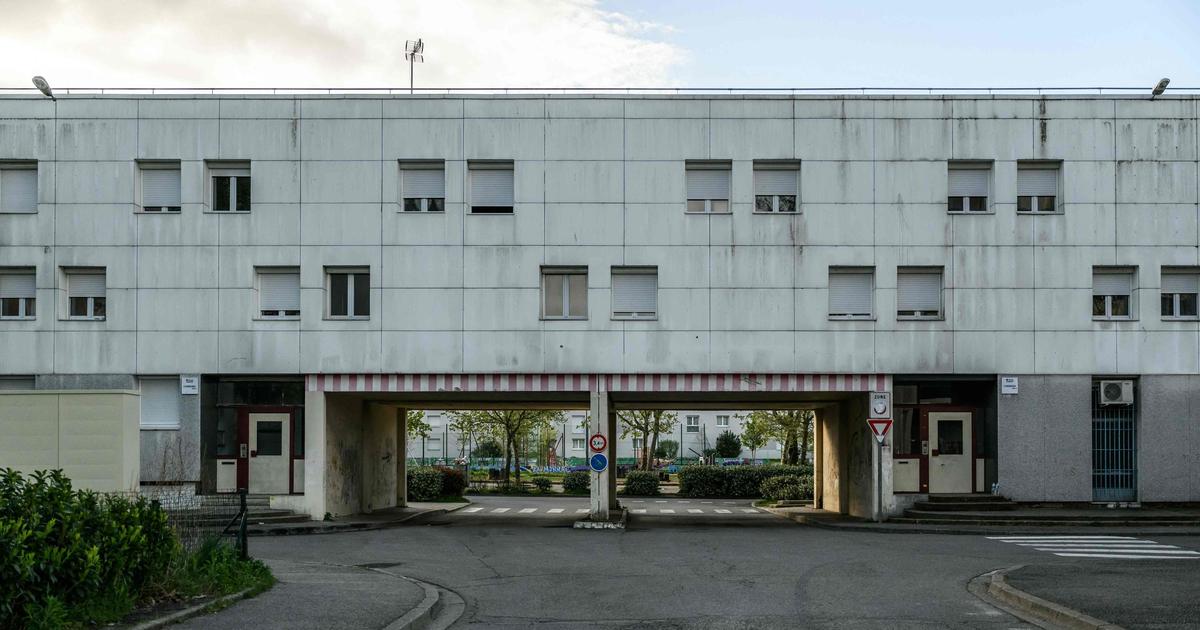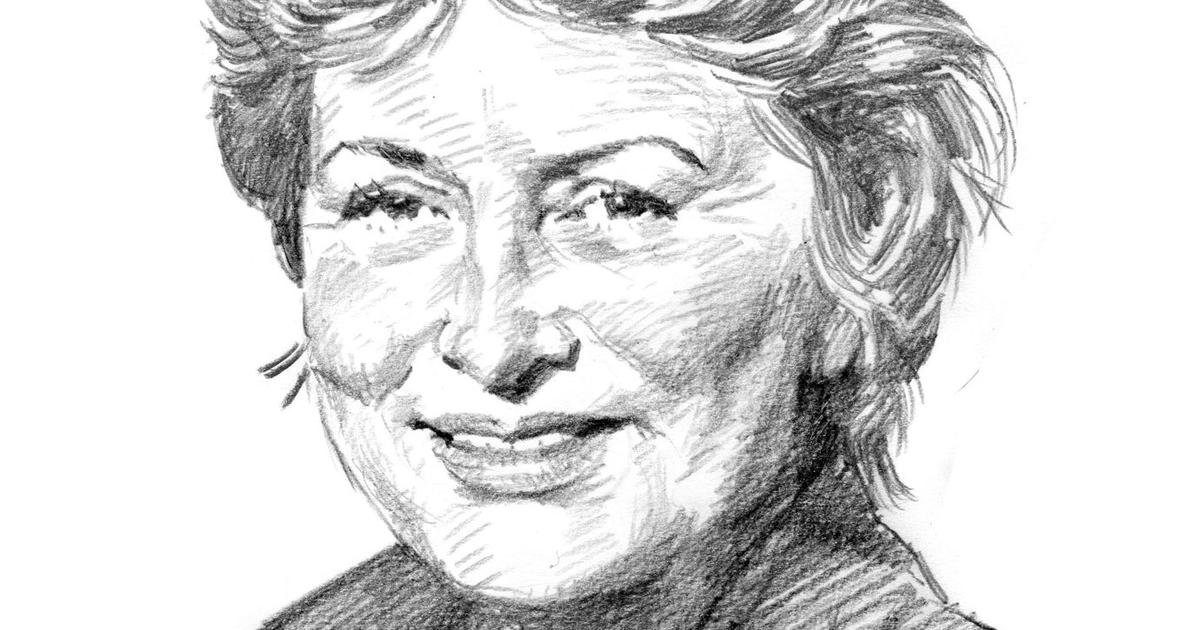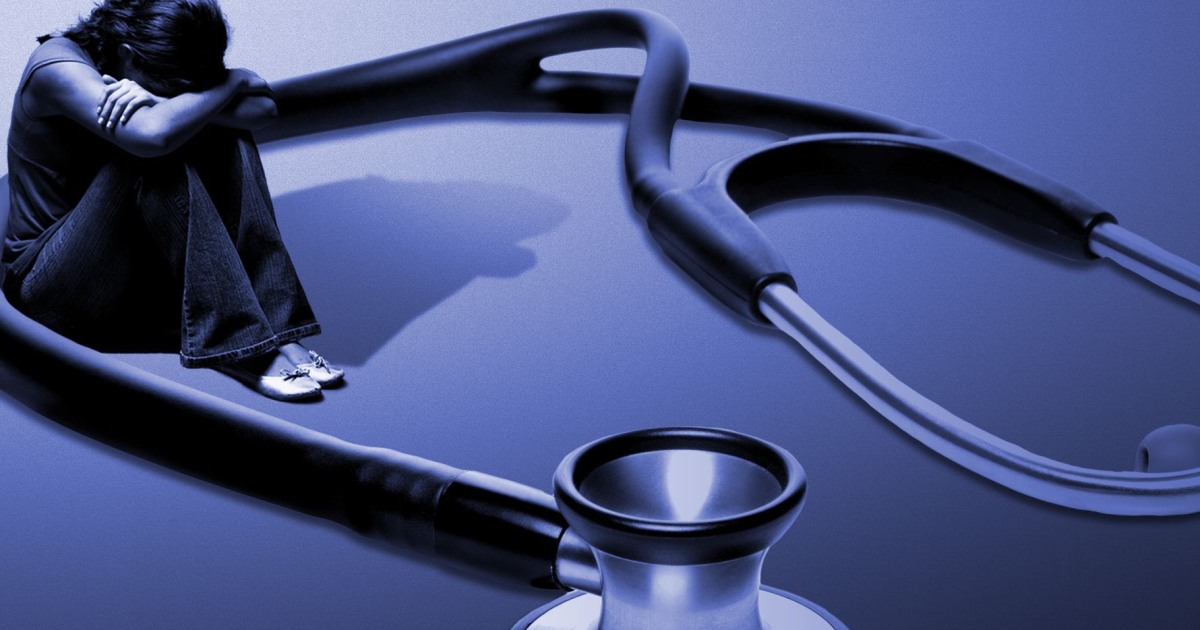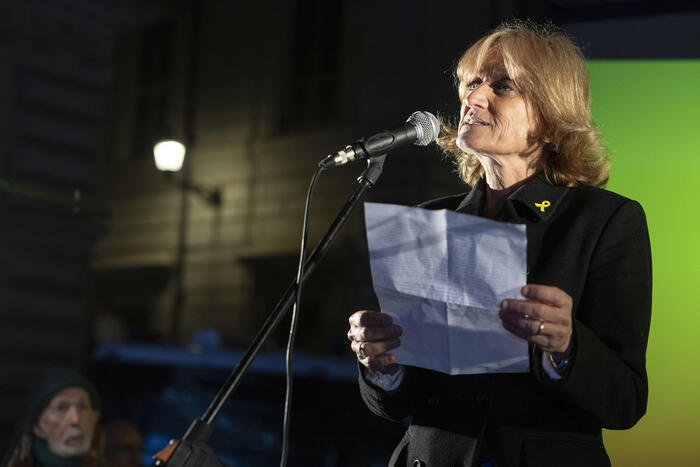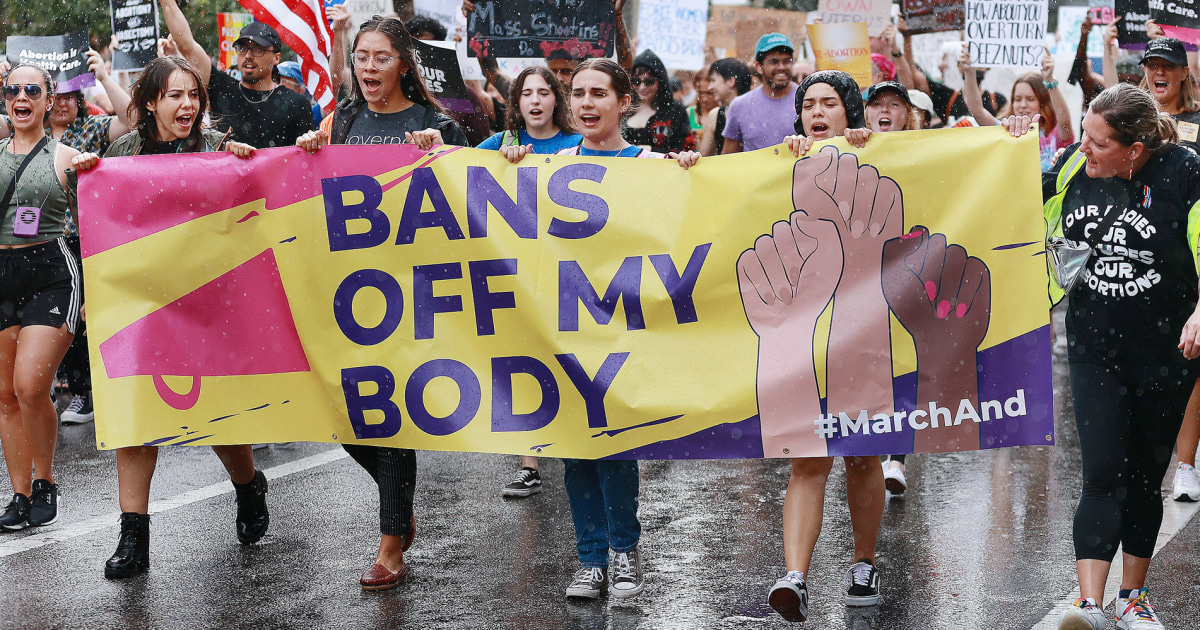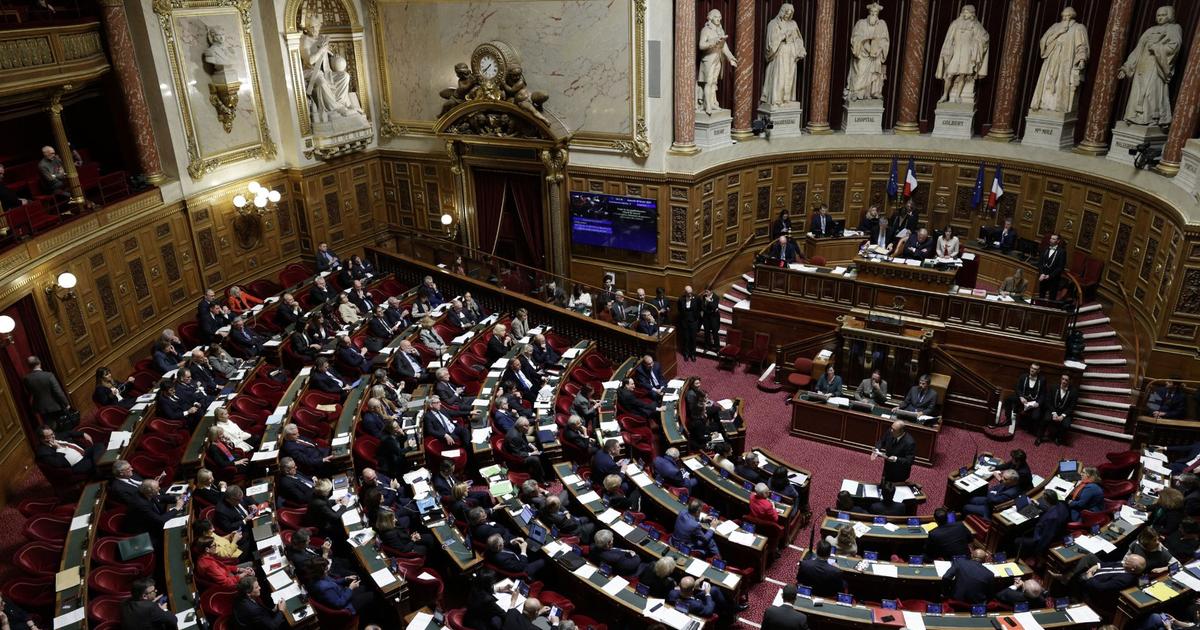A family walks in front of a sign in favor of legal abortion in Caracas, on January 16.RAYNER PEÑA R / EFE
After a curettage was performed for an abortion, a 13-year-old Venezuelan girl was subjected to police questioning without the presence of juvenile prosecutors or legal representation.
Thus began the investigation into the complaint of that family for the rape of which they were a victim, which initially resulted in a pregnancy.
Until now, the police have not caught the alleged aggressor, Carlos Alberto Terán, 52, accused of having repeatedly abused the victim, his neighbor in the Pueblo Nuevo neighborhood of Mérida state, in western Venezuela.
But he did put the girl's mother and feminist activist Vanessa Rosales, 31, in prison.
The arrests occurred on October 12.
They were charged with the crimes of conspiracy, conspiracy to commit a crime and induced abortion by third parties.
The case that became known only this January due to the pressure of the women's rights movement for the liberation of Rosales hopes to become a watershed that pushes the debate on the decriminalization of abortion in Venezuela, one of the countries with the laws most restrictive in the region.
When the girl became pregnant as a result of the rape, her mother turned to Rosales, who has been an activist for sexual and reproductive rights in the community where they live for more than a decade.
Rosales had also been a teacher of the girl, they knew each other.
For guiding the rape victim on the termination of pregnancy, she was imprisoned for three months in a Merida police station.
Since January 11 at his home, under house arrest.
The mother was released 23 days after her arrest - on November 4 - under precautionary measures for presentation.
They made a concession because the woman was breastfeeding some of her eight children, who were left - including the raped teenager - in the care of the older sister while she was imprisoned.
“Vanessa was the girl's teacher, she had given her classes, she knows her from the little school in the neighborhood.
The mother is a very poor lady, with eight children, who was obviously recommended to report the rapist.
When they formally denounced the rape, the persecution for abortion was unleashed, criminalizing the mother and Vanessa, ”says Venus Faddoul, from Rosales's defense team and director of the organization 100% Estrogeno.
The criminal process against both continues and in the case of Rosales the defense has denounced a number of irregularities.
“They violated due process and all the evidentiary periods, they held the hearing four days later than it should be, they did not admit anything to us, neither the constitutional protection nor the precautionary measure.
We reached a breaking point ”, Faddoul lists.
During his detention at the police station, Rosales also did not have access to private hearings with his lawyers, who were not allowed to see the prosecution file.
During the confinement there were difficulties in delivering the medications that Rosales is taking.
The fight of the women's movement is for full freedom and without charges for Rosales, but also because the case serves - in the midst of the wake left by the recent achievement of the Argentine women with the legalization of abortion until week 14 - to move the debate on this issue in the country, crushed by conservative positions and by the deep political and institutional crisis in Venezuela.
"There is always the misogynistic factor of dismissing independent women's movements, but now is the time to dust off those initiatives to decriminalize abortion," says Faddoul.
“Here everyone is conservative, closed and medieval.
There is no revolution or feminist opposition, ”she complains.
In 2019, the Women on the Edge of 2019 report revealed the results of a monitoring carried out in four hospitals in the country.
During the follow-up they registered a total of 2,246 abortions, about 15 daily, a third in adolescents and even girls under 12 years of age.
For every three deliveries attended, a woman was received with an abortion initiated clandestinely and unsafe.
“This case demonstrates the negative consequences of criminalizing abortion, both for those who perform it and for those who accompany it.
The Venezuelan crisis and the violation of the sexual and reproductive rights of women force a relaxation of the norm, as recommended to the Government, without it complying, the Cedaw (Committee for the Elimination of Discrimination against Women) and also the UN Committee on Economic and Social Rights, ”says psychologist Magdymar León, from the Venezuelan Association for Alternative Sex Education, one of the organizations that produced the report.
The activist points out that the debate on abortion must leave the realm of beliefs and enter that of human rights and public health.
Fighting because at least rape is a cause to allow abortion is a goal that activists could set.
The Venezuelan norm on the subject is contained in a Penal Code of more than 100 years.
It only allows the interruption of the pregnancy when the mother is at risk, although it admits a reduction of the sentence if the "honor" of the family is appealed, the so-called honoris causa abortion.
There is no protocol to guide the exception of therapeutic abortion.
“Pregnancy in adolescence is understood as high risk, and more so in social conditions like those of the girl Vanessa helped.
Wasn't it a risk to the life of that 13-year-old adolescent to continue with her pregnancy? ”Asks León.
Rosales's story has transcended and the international organization Womens Link, with offices in Spain and Colombia and a presence in Latin America and Europe, has joined the case in support of the legal team that defends the imprisoned activist.
“The case illustrates one of the consequences of criminalizing abortion and how the State diverts its functions to persecute those who help and guide and not the perpetrator of a rape,” says Costa Rican lawyer Marcia Aguiluz, from Womens Link.
“Venezuela has one of the most restrictive contexts in the region.
Criminalizing abortion is not an effective way to prevent or reduce abortions, because only those women who are most at risk and with fewer resources are criminalized.
And there is evidence that in the countries where it has been legalized, they have rather decreased ”.


